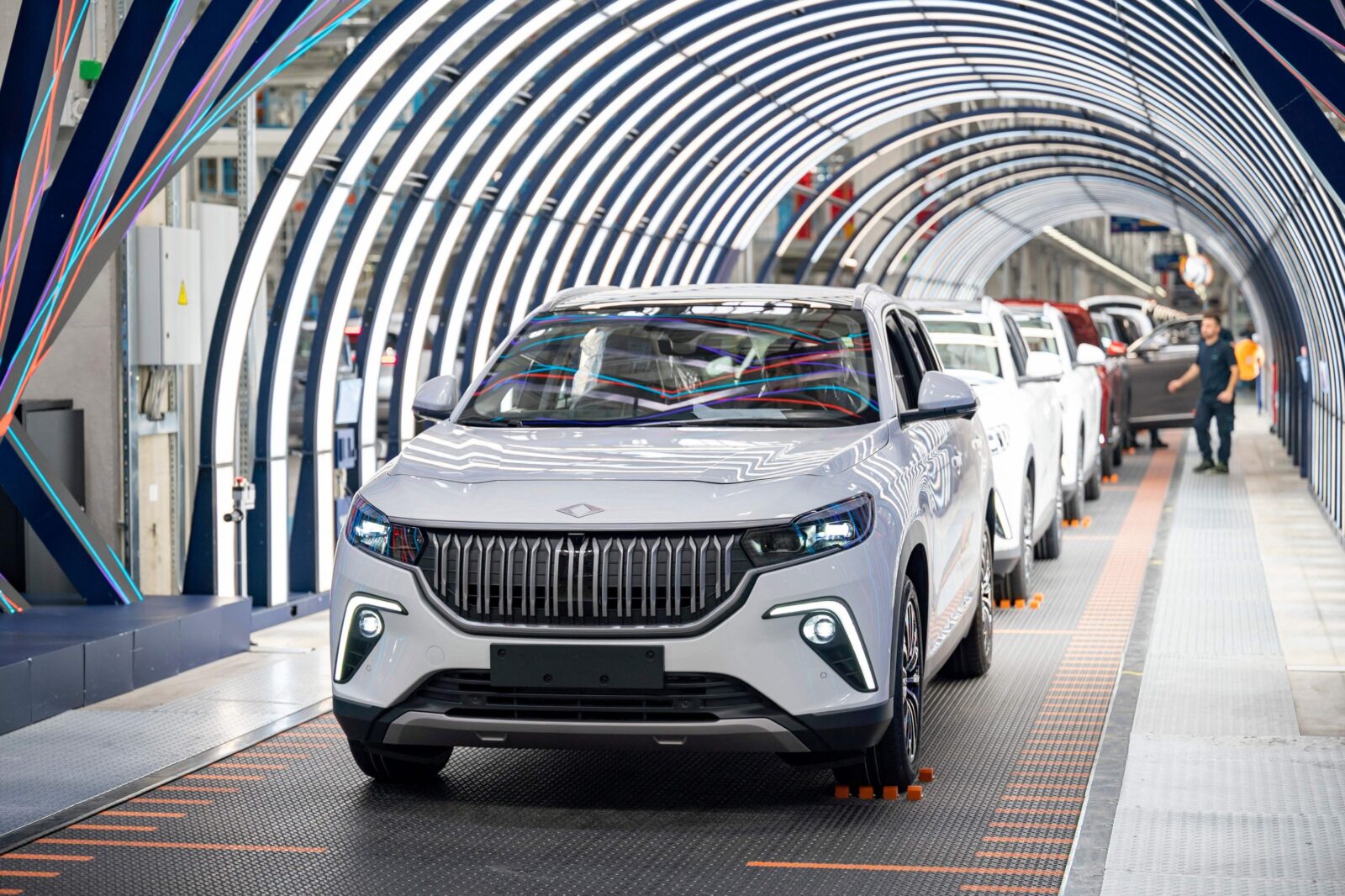Chinese electric vehicle manufacturers eye Türkiye for new factory investments: Report
 File photo shows BYD electric cars for export waiting to be loaded onto a ship at a port in Yantai, Shandong, China, on Apr. 18, 2024. (AFP Photo)
File photo shows BYD electric cars for export waiting to be loaded onto a ship at a port in Yantai, Shandong, China, on Apr. 18, 2024. (AFP Photo)
Chinese electric vehicle (EV) manufacturers are likely to establish new factories in countries such as Türkiye and Morocco, as production cuts in Europe and the U.S. loom, according to a report by the U.S.-based research and consulting firm Gartner.
In its “Top Automotive Trends for 2025” report released on Thursday, Gartner stated that many automotive factories in Europe and North America are at risk of closure or sale this year due to excess capacity and intense price competition.
Gartner anticipates that this shift will lead to the closure or sale of several automotive factories with low utilization, which in turn could cause a domino effect, impacting supplier factories and reshaping the automotive production map of the U.S. and Europe. This transition is expected to position low-cost countries as major hubs for automotive production capacity and supply chains.

To overcome trade barriers, Chinese automakers are predicted to purchase existing factories or establish new ones in lower-cost European countries or trade partners such as Türkiye and Morocco, according to the report.
Electric vehicle deliveries to grow by 17%
Pedro Pacheco, Vice President Analyst at Gartner, noted that closures or sales are more likely in high-cost countries where political and social pressure is balanced by rising competition.
To adapt to this evolving landscape, automakers may turn to EV manufacturers and digital firms to acquire software architectures, strengthen their R&D capabilities, or form joint ventures with technology companies, Pacheco added.
The report highlighted that automakers in Europe and North America are expected to reduce production capacity by 2025 due to challenges such as emission targets and tariffs. Meanwhile, China’s dominance in EV manufacturing is projected to grow, driven by its technological superiority in software and electrification.
Gartner also forecasted that global EV shipments—including buses, cars, vans, and heavy trucks—will grow by 17% in 2025. By 2030, more than 50% of all vehicle models marketed by automakers are expected to be EVs, the report predicted.
Chinese automotive investments in Türkiye
Chinese electric vehicle (EV) manufacturers are increasingly focusing on Türkiye as a key hub for expansion as several major Chinese automakers have already taken steps to invest in Türkiye, signaling a growing trend in the EV industry.
On July 8, BYD officially signed a landmark $1 billion investment agreement in Manisa, which includes the establishment of an electric vehicle manufacturing facility with an annual production capacity of 150,000 vehicles. Meanwhile, Chinese automaker Chery is reportedly planning to invest $1 billion in Türkiye as part of its expansion strategy.
MG, another prominent Chinese EV manufacturer, has also shown interest in Türkiye, as its parent company, SAIC Motors, and its Turkish partner Dogan Trend Automotive continues the talks.



